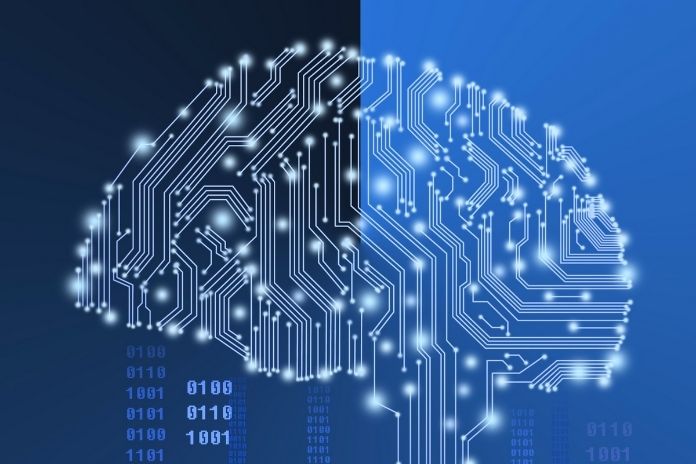Human Interaction With Technology
Artificial Intelligence: Digital assistants are slowly gaining ground in our lives. Some we know by name, like Siri, Alexa, and Cortana. Others respond to our calls, like “OK, Google.”
What brings distrust and fascination is, to a large extent, the means of communication we use to get in touch with them, precisely because it is the same that we use with other people: our voice. The ability to chat is impressive, and what is beyond this “interface” is perhaps even more so, as we are not aware of how everything works, and this technology must evolve more and more.
The human being’s relationship with instruments is unique, as their use allowed him to overcome obstacles that would be impossible only with his fragile and limited body. The ability to communicate with each other through speech and signs was another factor that contributed to creating their world, distant and protected from the wild. Joining an instrument to understand a language is no longer a foreign subject for philosophical conversations; it is a marriage that can further enhance the relationship between human beings and what differentiates them from other animals: tools and languages in their most diverse expressions.
When comparing intelligence between a person and a machine, it is not uncommon to attribute tacit knowledge (implicit, hidden) as unique to the human being; after all, it matures with the experiences acquired throughout life, becoming personalized, intuitive, and subjective. Explicit knowledge is the other side of the coin; it can be formalized rationally, defined by rules, and stored in a database, making it possible to transfer this type of knowledge to programming languages in the form of algorithms and data structure. But aren’t some types of machine learning a way of producing tacit knowledge, since, when learning to solve a problem, this solution may not have a formal explanation of how to get there?
Language And Machines
For a machine to transform our language into information and make an assistant respond to a voice command, that language must be processed. There are many challenges for this processing to take place and the potential for applications goes beyond the assistance present in our smartphones. Natural language carries an infinity of information. Although the human being is a master at manipulating words, there is a limit of information that even the most intelligent person in the world can absorb and time for this knowledge to make sense.
A machine, on the other hand, for all its computing and storing potential, needs instructions to handle the data that is supplied to it. Teaching a machine built to perform logical operations to extract information mapped into words is several approach to Artificial Intelligence. But like our tacit knowledge, what they learn generates an answer but doesn’t necessarily explain how to get there.
As technology is being used, possibilities for its improvement are being explored. By capturing facial micro expressions, for example, it is possible to find details that indicate when a person is lying. Language processing can help to check facts and identify contradictions or ambiguities in any statement or testimony, serving as a tool to capture details that may go unnoticed at first glance. There are several possibilities to interpret a sentence, just as there are different sentences that express the same idea, and technology can complement human intelligence to find other paths.
Implementation And Challenges
According to the third article of the law introducing the norms of Brazilian law, no one excuses themselves from complying with the law, claiming that they do not know it; however, with the number of existing laws and jurisprudence, it becomes difficult to follow and know all the legislative content. . If properly used, the technology could provide answers to queries in legal areas, assist in the reading of processes and bring references. Thomson Reuters, for example, brings Artificial Intelligence to the legal field. The technology can also detect skin cancer better than some dermatologists and help NASA find planets.
Ethical questioning alone does not prevent technology from advancing, and society must ask itself what the impact of Artificial Intelligence is. Among the big questions are: What is the price for this technology? How can it turn against us? What currency and what do we get in return? How much does this involve our privacy, comfort, and employment? In addition to social questions about our role in society and the role of machines. Despite many uncertainties, research and investments continue.
In the distant future, we can imagine that computers will be able to summarize a movie a series and analyze the soundtrack and the images to say if they will be good or box office failures. We will be able to use language processing to extract information from dialogues, neural networks to analyze special effects, digital signal processing to ascertain the sound quality, gather all this information, cross it with statistical data, give the probability of success, and estimate the profit. Although the prognoses are excellent, the reality can be completely different, as nothing changes the uncertain nature of the human being.
The interfaces used to extract the best of technology will constantly be adjusting to the realities and needs of the human being. There is still a disconnect between these interfaces, keyboards, monitors, virtual reality environments, smartphones, tablets, drones, and the Internet of Things. In general, each of these tools fulfills a specific role. The combination of computers with language opens up many opportunities for research, development, and innovation because whoever masters this technology will be getting what made human beings so different and unique, which transformed the world and created a new world for themselves.
Also Read: What Is Artificial Intelligence Used For?

